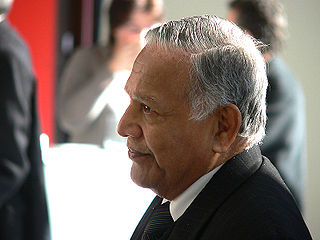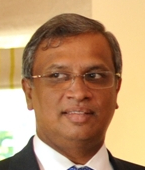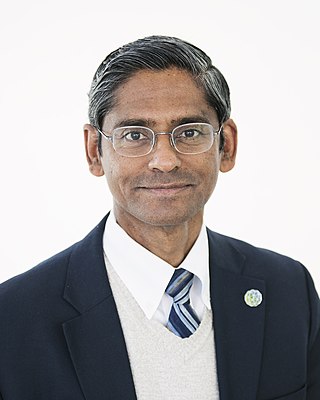Related Research Articles
Savitri Goonesekere is a jurist and academic from Sri Lanka. She is an international expert on the rights of children.
Dr. Deepika Udagama is a Sri Lankan professor, academic administrator, human rights activist and also served as the Head of the Human Rights Commission of Sri Lanka. She has served as the head of the Department of Law and at the University of Peradeniya. She has specialised on the field of international Human Rights law. She served as Sri Lanka's alternate member to the United Nations (UN) Sub-Commission on the promotion and protection of Human Rights, and the UN Sub-Commission's Co-Special Reporter on Globalisation and its impact on Human Rights. Dr. Udagama was the founding director of the Centre for the Study of Human Rights at the Faculty of Law. She serves as the Chairperson of the Sri Lanka Foundation's Commission on Democracy and Human Rights. She holds and LLB and LLM and a JSD (Calif.).

Education in Sri Lanka has a long history that dates back two millennia. While the Constitution of Sri Lanka does not provide free education as a fundamental right, the constitution mentions that 'the complete eradication of illiteracy and the assurance to all persons of the right to universal and equal access to education at all levels" in its section on directive principles of state policy at (27. Sri Lanka's population had an adult literacy rate of 96.3% in 2015, which is above average by world and regional standards. Computer literacy in 2017 28.3% and phone users in 2017 105%, website users 32% in 2017. Education plays a major part in the life and culture of the country, which dates back to 543 BC. Sri Lanka's modern educational system modeled after Christian missionary system was brought about by its integration into the British Empire in the 19th century. Education currently falls under the control of both the Central Government and the Provincial Councils, with some responsibilities lying with the Central Government and the Provincial Council having autonomy for others.

Neelakandan Tiruchelvam, PC was a Sri Lankan Tamil lawyer, academic, human rights activist and politician. He was a Member of Parliament and Director of the International Centre for Ethnic Studies. He advocated for a peaceful resolution to the Sri Lankan Civil War and is considered one of the most influential researchers on constitutional law and constitutional theory in Sri Lanka.
Deshamanya Radhika Coomaraswamy is a Sri Lankan lawyer, diplomat and human rights advocate who served as an Under-Secretary General and Special Representative for Children and Armed Conflict from 2006 to 2012. Secretary-General Kofi Annan appointed her to the position in April 2006. In 1994, she was appointed the United Nations’ Special Rapporteur on Violence Against Women — the first under this mandate. Her appointment marked the first time that violence against women was conceptualized as a political issue internationally.

Christopher Gregory Weeramantry, AM was a Sri Lankan lawyer who was a Judge of the International Court of Justice (ICJ) from 1991 to 2000, serving as its vice-president from 1997 to 2000. Weeramantry was a judge of the Supreme Court of Sri Lanka from 1967 to 1972. He also served as an emeritus professor at Monash University and as the president of the International Association of Lawyers against Nuclear Arms.
Ranjith Kanishka Parakrama Atapattu was a Sri Lankan physician and politician.
Chitta Ranjan De Silva, PC was a Sri Lankan lawyer. He was Attorney General and Solicitor General of Sri Lanka. He was the Chairman of the Lessons Learnt and Reconciliation Commission.
Mohamed Shibly Aziz, PC was a Sri Lankan lawyer. He served as Attorney General of Sri Lanka from 1995 to 1996 and served in the Constitution Council of Sri Lanka from 2015 to 2018.

Mathiaparanan Abraham Sumanthiran, MP, PC born 9 February 1964) is a Sri Lankan Tamil lawyer and politician. A successful civil lawyer who practices civil litigation, human rights and constitutional law; Sumanthiran has severed as Member of Parliament from the Jaffna District since 2015 and National List from the 2010 to 2015 from the Illankai Tamil Arasu Kachchi.
The University of Colombo currently has seven faculties with 41 academic departments and two interdependent schools with five academic departments. All faculties and schools carries out courses of study and research in both graduate and undergraduate studies. In addition, the university has several institutions that specialize in different areas of research.

Upatissa Atapattu Bandaranayake Wasala Mudiyanse Ralahamilage Shirani Anshumala Bandaranayake, known as Shirani Bandaranayake, served as the 43rd Chief Justice of Sri Lanka. Although a qualified lawyer, she has never practiced law. After university Bandaranayake entered academia, holding a number of senior positions at the University of Colombo, including associate professor of law and the dean of the Faculty of Law at the University of Colombo. She was first appointed to the Supreme Court of Sri Lanka in 1996, becoming Sri Lanka's first female Supreme Court Judge. Bandaranayake was appointed chief justice in May 2011 following the mandatory retirement of Asoka de Silva. Bandaranayake was controversially impeached by Parliament and then removed from office by President Mahinda Rajapaksa in January 2013. and on 28 January 2015 the government of Sri Lanka, had removed all obstacles for Bandaranayake to hold her position as the 43rd Chief Justice by the President Maithripala Sirisena, on the ground that her 2013 impeachment was unlawful and as such the appointment of Mohan Peiris, her successor, was void Ab initio. This paved the way for Bandaranayake to resume duties on 28 January 2015. She retired from the position on 29 January 2015, one day after her reappointment, claiming support for a free and fair Judiciary in Sri Lanka.

Shirani Bandaranayake, the 43rd Chief Justice of Sri Lanka, was impeached by Parliament and then removed from office by President Mahinda Rajapaksa in January 2013. Bandaranayake was accused of a number of charges including financial impropriety and interfering in legal cases, all of which she has denied. The impeachment followed a series of rulings against the government by the Supreme Court, including one against a bill proposed by Minister Basil Rajapaksa, President Rajapaksa's brother. Bandaranayake was replaced as chief justice by former Attorney General Mohan Peiris. Peiris is considered to be an ally of President Rajapaksa and his appointment is seen by critics as further consolidation of power by the president and his family. Bandaranayake refused to recognise the impeachment and lawyers groups refused to work with the new chief justice. Bandaranayake's controversial impeachment drew much criticism and concern from within and outside of Sri Lanka. On 28 January 2015 she was reinstated and retired on 29 January, the next day.
Jayampathy Wickramaratne, PC is a Sri Lankan lawyer and politician. He was a national list member representing the United National Party in the Parliament. A former Director of Programs of the Institute of Constitutional Studies in Colombo, he has served as a Senior Adviser to the Ministry of Constitutional Affairs and was a member of the Sri Lankan Law Commission. He entered parliament in 2015 General Election from the National List of the United National Party. He was also appointed as the Parliamentary Secretary to the Prime Minister Ranil Wickramasinghe. Wickramaratne the key person behind the proposed 2018 constitution of Sri Lanka.

Hatharasinghege Michelle Dilhara is a Sri Lankan actress and an Environmentalist. One of the most popular television actresses in Sri Lanka, Dilhara is best known for playing the role of "Ayoma" in the popular television series Sudu Andagena Kalu Awidin Apart from acting, she also engages in various philanthropic activities and is a social activist and an author.
Alexandra Harrington is an international jurist in human rights, environmental and climate change law, and both a Professor of Law at Albany Law School and Assistant Director of the Global Institute for Health and Human Rights. In addition, Harrington is Director of Studies for the International Law Association of Colombia, a member of the ILA Committee on the Role of International Law in Sustainable Natural Resource Management for Development, and is Lead Counsel for Peace, Justice and Governance at the Centre for International Sustainable Development Law.
Dr. Joseph Anthony Leopold Cooray was a foremost jurist in Constitutional Law and Human Rights in Sri Lanka. Cooray was a member of the Constitutional Drafting Committees of both the Sri Lankan Constitution of 1972 and the 1978 Constitution of Sri Lanka. Cooray was also a Co-Secretary of the Ceylon National Congress and an influential member of "the Young Turks" of Sri Lanka. Cooray served as a Judge of the Constitutional Court of Sri Lanka. He also served as the Vice-Chairman of the UN Human Rights Committee from 1987 to 1990. Cooray was influential in including a chapter on Fundamental Human Rights in the Sri Lankan Constitution of 1972. Cooray is the author of Constitutional and Administrative Law of Sri Lanka
Transnational environmental policies are efforts to confront global environmental issues such as climate change, ozone depletion, or marine pollution. Environmental policies are transnational when they include actors from at least two sovereign states. As of 2018, more than 1,800 multilateral environmental agreements are in effect.

Dr. Lalanath de Silva is a Sri Lankan born environmental lawyer, serving as the first Head of the Independent Redress Mechanism of the Green Climate Fund (GCF) established as the main funding mechanism under the United Nations Framework Convention on Climate Change (UNFCCC). He was appointed to this position by the 24-member board of the GCF and is one of the four board-appointed officials of the fund.
Rangita de Silva de Alwis is a Sri Lankan-American academic, lawyer and women's rights expert. She is well known as a strong advocate demanding equal and fair representation of women in all spheres. She has worked in over 25 countries as a human rights scholar with different governmental organizations, non-governmental organizations, and academic institutions.
References
- ↑ "Sumudu Atapattu, Director of UW Law School Research Centers". University of Wisconsin Law School. Retrieved 2018-12-27.
- ↑ "Sumudu Atapattu". RWI. Retrieved 2018-12-27.
- ↑ "Dr. Sumudu Atapattu". CISDL. Retrieved 2018-12-27.
- ↑ "Sumudu Anopama Atapattu, Curriculum Vitae" (PDF). University of Wisconsin Law School. Retrieved 2018-12-27.
- ↑ "Dr. Sumudu Atapattu, Fulbright Scholar Directory (2000-2001), p.60" (PDF). University of Arkansas. Retrieved 2018-12-27.
- ↑ "Dr. Sumudu Atapattu". CISDL. Retrieved 2018-12-27.
- ↑ "Exceptional Achievement Winners 2012, Dr. Sumudu Atapattu". Sri Lanka Foundation. Retrieved 2018-12-27.
- ↑ "Lawyer gives talk on legal, humanitarian repercussions of climate change". Daily Texan, Sept. 27, 2016. Retrieved 2018-12-27.